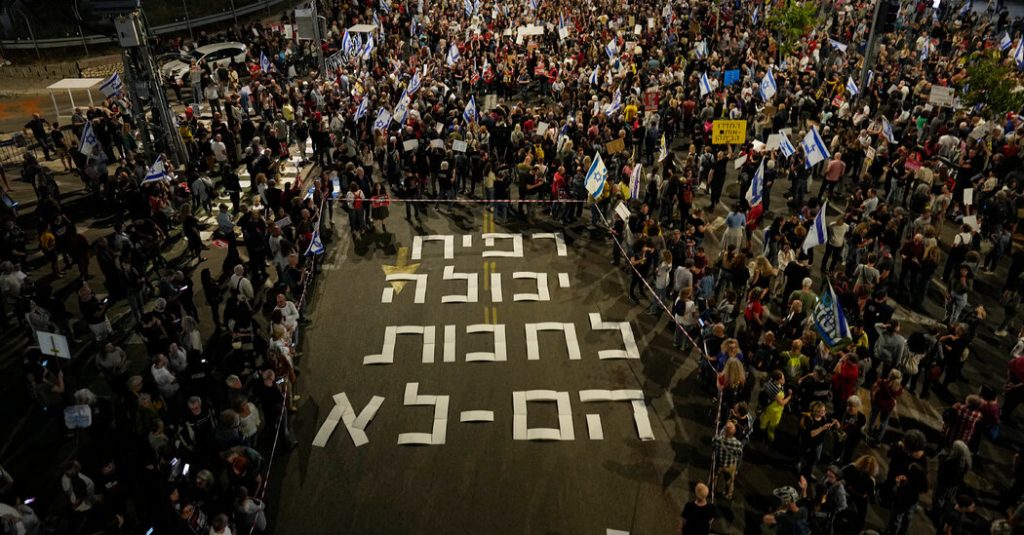Israeli negotiators have shown signs of flexibility in ongoing cease-fire talks with Hamas by reducing the number of hostages they want Hamas to release during the first phase of a truce. This new proposal has raised hopes for progress in the negotiations, prompting a mid-ranking delegation from Israel to plan a trip to Cairo to resume talks. However, Hamas has not yet confirmed whether it will send representatives to the negotiations. The American Secretary of State, Antony J. Blinken, mentioned that the onus is now on Hamas to accept the cease-fire offer, which he described as generous.
The cease-fire offer reportedly includes a 40-day cease-fire and the release of potentially thousands of Palestinians imprisoned in Israel in exchange for the hostages held by Hamas. The Egyptian Foreign Minister expressed hopefulness about the latest cease-fire proposal but did not provide details of the offer or its origin. President Biden is engaging with regional leaders to increase pressure on Hamas to accept the deal, despite potential obstacles such as Hamas’ demand for a permanent cease-fire and Israel’s goal of rooting out militants.
Israel has previously demanded that Hamas release around 40 additional hostages to secure a new truce, but is now willing to settle for 33, with the assumption that some of the hostages may have died in captivity. Despite the ongoing negotiations, both Hamas and Israeli forces continue to engage in military actions, leading to casualties on both sides, with reports of airstrikes killing multiple people in Gaza. The situation remains dire, with more than one million Gazans seeking shelter in Rafah.
In a display of continued hostilities, Hamas launched rockets from Lebanon into northern Israel, targeting an Israeli military position. While the rocket barrage did minimal damage, it was seen as a signal from Hamas that they are still actively involved in the conflict. Secretary of State Blinken is engaged in diplomatic efforts to address the crisis, meeting with regional leaders to discuss the war, humanitarian aid for Gaza, and efforts to free hostages.
The Biden administration aims for greater regional integration and a pathway to a Palestinian state with security guarantees for Israel as part of a broader plan to address the conflict. Saudi Arabia and other Arab nations could potentially normalize relations with Israel in exchange for advanced weapons and security commitments from the United States. Similarly, Israel would commit to a concrete pathway to establish a Palestinian state within specific deadlines. The British Foreign Minister highlighted the need for the Hamas leadership to leave Gaza for the conflict to end.
As the negotiations and military actions continue in the region, there is a sense of cautious optimism regarding the potential for a cease-fire agreement between Israel and Hamas. The international community, including the United States and regional Arab partners, are working towards a diplomatic solution to address the crisis and pave the way for a lasting peace in the region. The critical humanitarian situation in Gaza and the larger implications of the conflict for regional stability underscore the urgency of reaching a peaceful resolution to the longstanding Israeli-Palestinian conflict.


